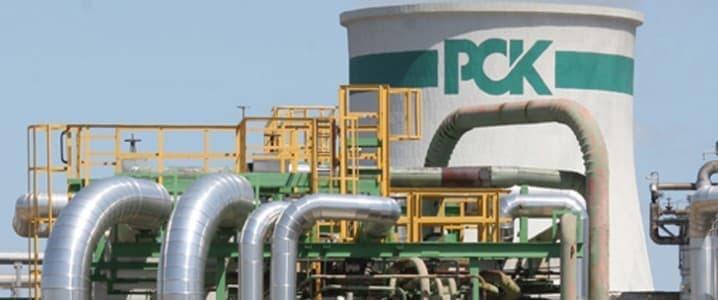The United States has issued a general license allowing limited operations of Rosneft’s German subsidiaries, according to a notice posted on the company’s website and confirmed by Reuters. The authorization applies to Rosneft Deutschland and RN Refining & Marketing, both under German federal trusteeship since 2022, when Berlin assumed control to maintain refinery continuity and prevent fuel shortages.
The license does not lift sanctions on Rosneft. However, it allows maintenance, payments, and service activities necessary to keep assets functioning under non-Russian management.
The Schwedt refinery, which supplies roughly 90% of Berlin and Brandenburg’s fuel, lies at the center of this legal arrangement. Germany placed Rosneft’s 54% under state control through the Federal Network Agency after the EU embargo on Russian crude took effect. Since then, Schwedt has been operating on non-Russian feedstock delivered via the Rostock pipeline and through Poland’s Gda?sk terminal.
The new U.S. license ensures that transactions supporting Schwedt’s ongoing operations, including service contracts, insurance, and financial clearing, remain compliant under U.S. sanctions law. This coordination essentially signifies that Washington fully intends to maintain energy stability in Central Europe, even as it moves to tighten restrictions on Russian oil and gas revenue.
The measure follows a broader sanctions escalation that added Rosneft and Lukoil to new U.S. designations, marking one of Washington’s most extensive enforcement rounds since restrictions on Russian energy began in 2022. The latest package expands coverage to trading houses, insurers, and tanker operators involved in facilitating Russian oil shipments, effectively tightening the compliance perimeter across global supply chains. U.S. officials said the move aims to close loopholes in the so-called “shadow fleet” system and constrain revenue that Moscow channels through offshore intermediaries.
Enforcement moves are already reshaping flows. Indian Reliance Industries will halt imports, and a Russian tanker reversed course under threat of secondary sanctions.
The license is time-limited and currently runs to April 29 next year.
By Charles Kennedy for Oilprice.com
More Top Reads From Oilprice.com

